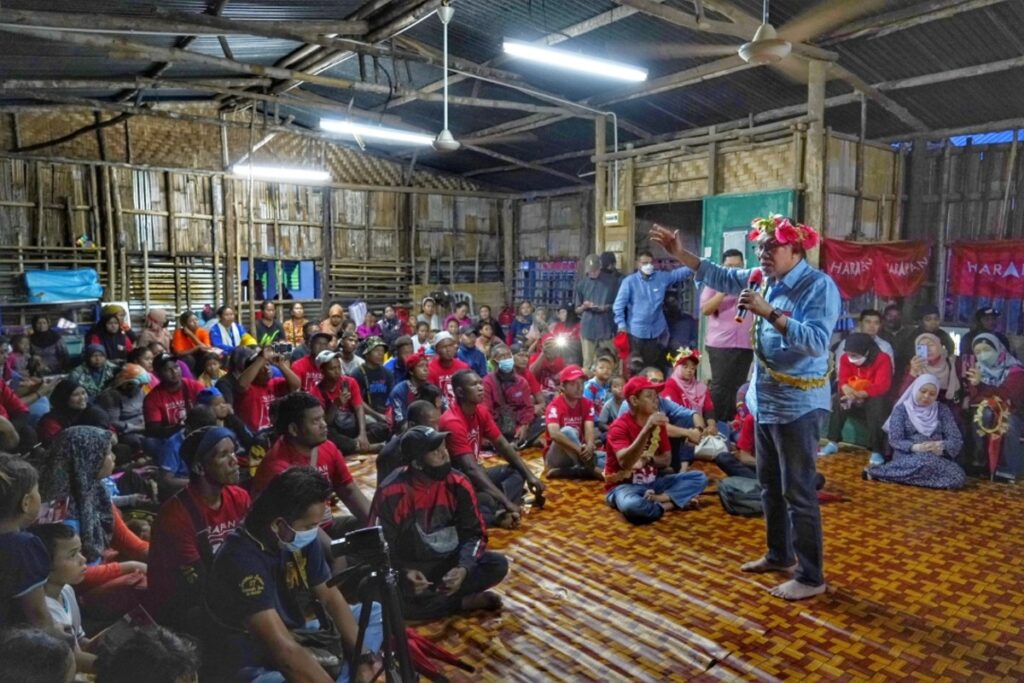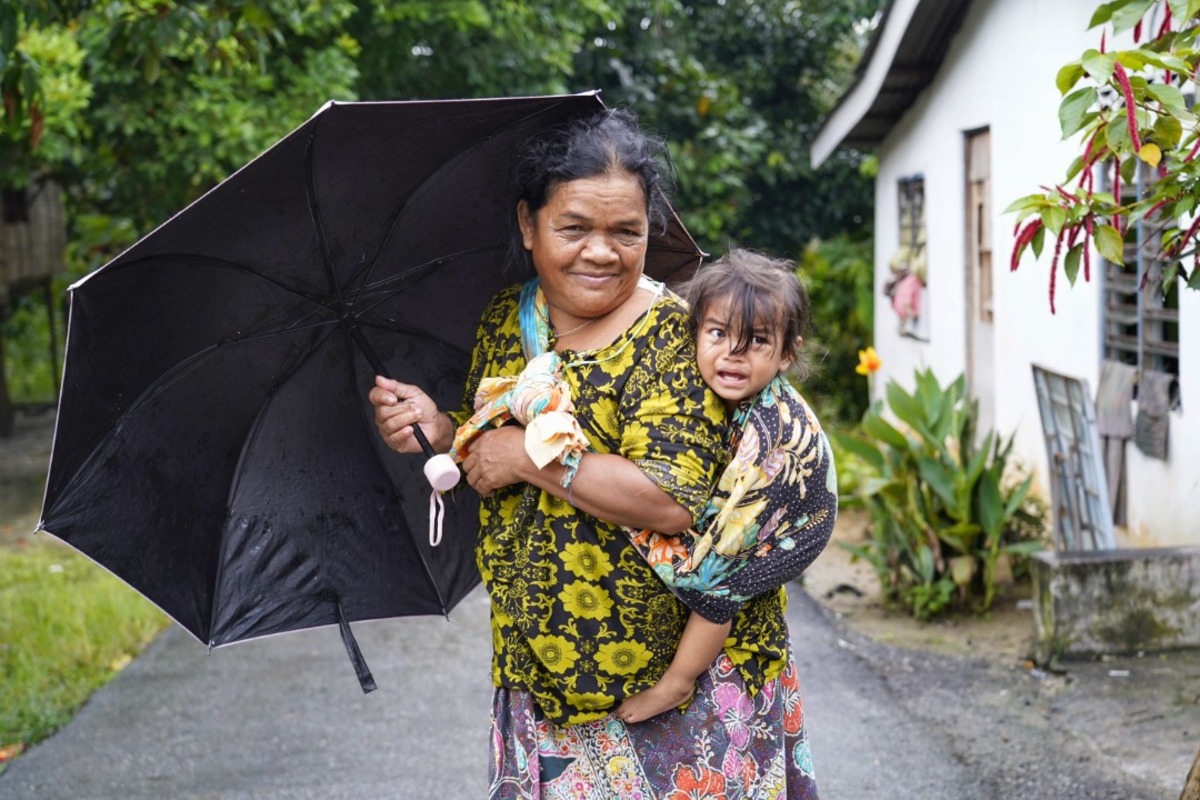IPOH, Nov 12 – On a brief trip to a remote Orang Asli village in the Ulu Kinta Forest, I met with some women from the Temiar tribe at Kampung Makmur, who spoke about their health care access, including childbirth at a health transit centre operated under JAKOA.
I was there last Wednesday with a colleague to tail Pakatan Harapan (PH) candidate for the Tambun federal seat, Anwar Ibrahim, on his campaign trail. The 75-year-old PKR president is hoping to become Malaysia’s 10th prime minister.
It took about 20 minutes to drive from the Ipoh city centre in Perak, to the Ulu Kinta Forest Reserve, and another 15 minutes from the outskirts of the forest into Kampung Makmur. A single-track narrow paved road was the only route up to the Orang Asli village, located on the high grounds near Bukit Batu Suluh – a hiking spot.
While waiting for Anwar’s entourage to arrive, I approached some women folk at the village’s rumah sewang, a community centre built out of rainforest materials.
The women folk who had gathered at the rumah sewang were mostly young, likely in their 20s or 30s. They had been busy preparing food to welcome Anwar’s arrival. With me, they spoke in Bahasa Malaysia, but between them, they spoke in their native Temiar.
The women folk were largely content, saying that mobile clinics would come every week to do health checkups for free. “If it’s just for BP checks, we can do it at the mobile clinic. If there is a need to see a doctor, they can take us down to the hospital,” said one woman who requested anonymity.
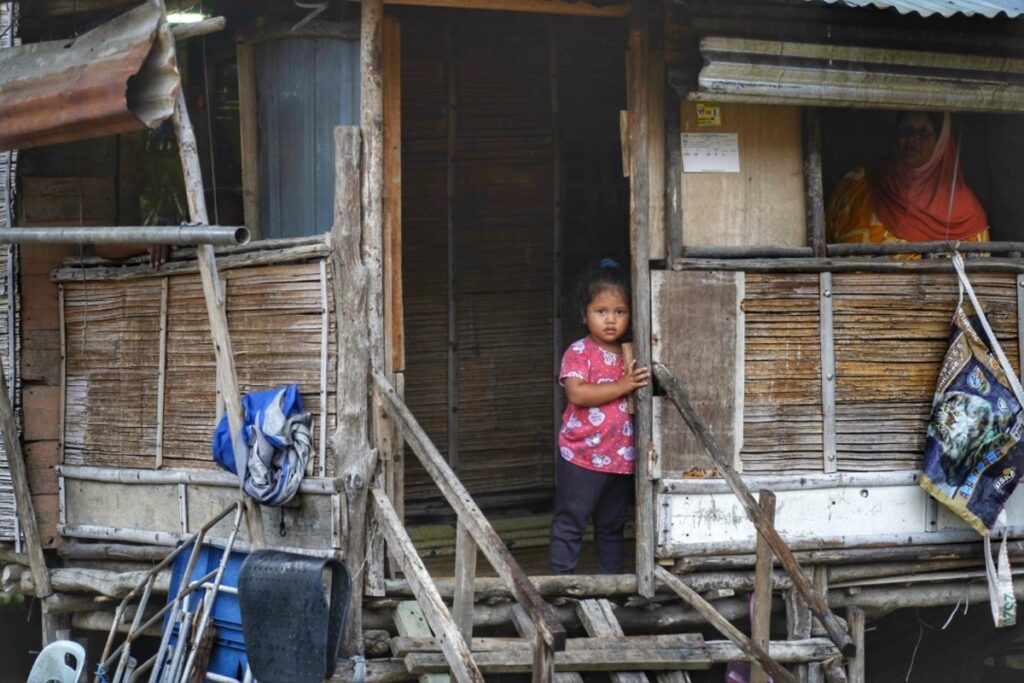
Raja Permaisuri Bainun Hospital (HRPB) in Ipoh is a 40-minute drive, or 21.5 km, from Kampung Makmur. On days with heavy traffic, it can take nearly an hour. The distance is equivalent to a trip from Shah Alam to 1 Utama Shopping Centre in Petaling Jaya, Selangor.
Once they are at the hospital, the patient from Kampung Makmur would then have to endure long waiting times, like many others, before being attended to by a doctor.
In cases where there is an emergency such as childbirth, the women of Kampung Makmur said there is a health transit station under the Department of Orang Asli Development (Jakoa) located some 20 minutes away by car that they can go to.
Some villagers at the Orang Asli village had cars, but most travelled on motorcycles.
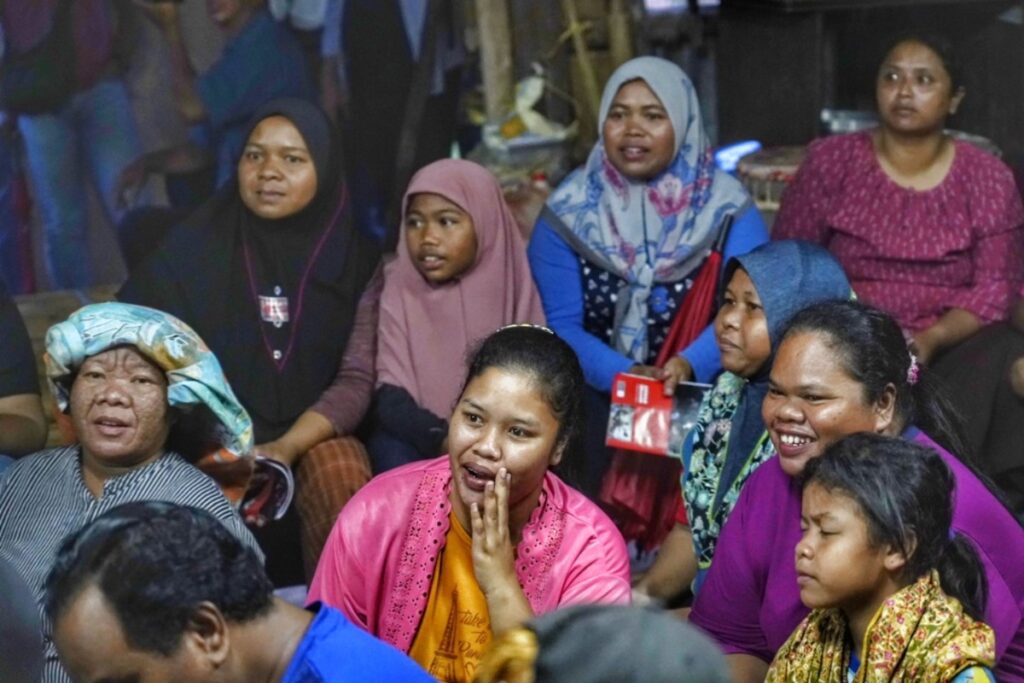
Malinda, a 27-year-old mother of two, said women in their 36th week of pregnancy can begin to receive care at the health transit station until their delivery. After giving birth, they will be put under observation for 15 days to make sure that both mother and child are healthy.
“It depends on your condition. Some are in for two weeks, some for four weeks. If there are no complications, you can be released after 15 days. If there are complications, you will be taken to the hospital. The ‘Misi’ will take you through the whole process,” Malinda said.
“Misi” is a term commonly used to refer to nurses. Nurses are available round the clock at the health transit station, but doctors travel back and forth from the main general hospital in Ipoh.
“Everything is there. You get fed, you get care, and your family can come to visit. No problem,” Malinda said.
Another woman, who was seated beside Malinda, said that the transit station used to cater to people with diseases like tuberculosis. “But now it’s mostly used as a labour ward.”
According to Jakoa’s website, the Orang Asli department’s health and medical division is run by the Ministry of Health (MOH). JAKOA’s health services include treatment centres, transit stations, rural clinics (klinik desa), mobile clinics, and “flying doctor” services.
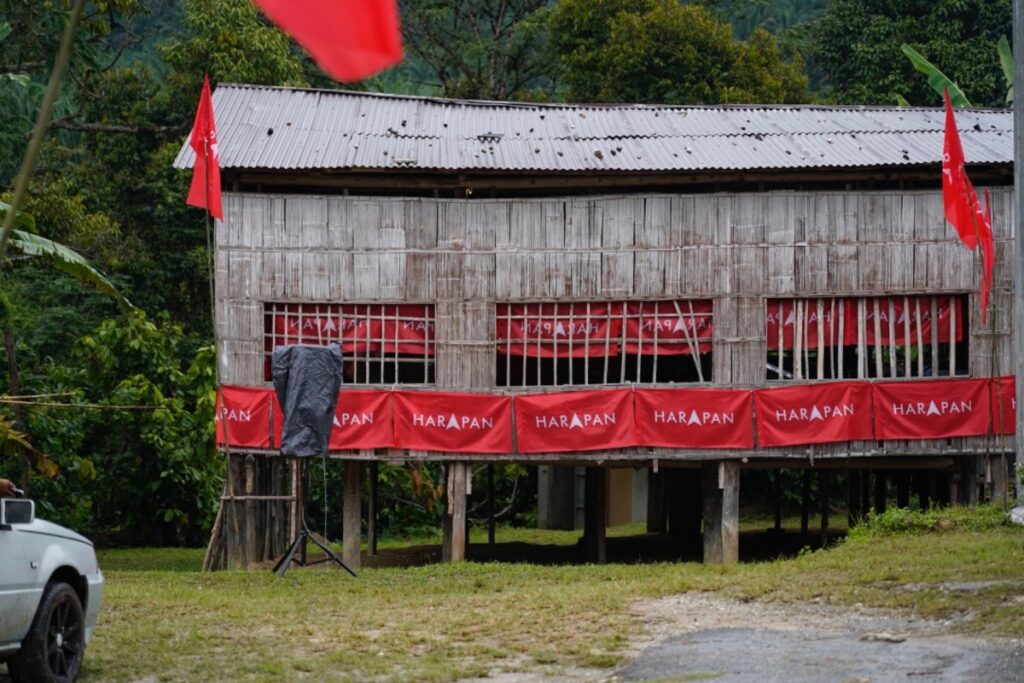
In Kampung Makmur, there are about 200 heads of households, meaning that the entire village has an estimated population of more than 500 people, including women and children.
One villager told me that Kampung Makmur is made up of five separate, smaller villages: Kampung Jambu, Kampung Dolah, Kampung Kulim, Kampung Lalang, and Kampung Bakok.
Most of them had to resettle to the current location from their previous location near what is now the Sultan Azlan Shah Dam. “In 2000, we moved here,” the villager said.
At the height of the Covid-19 pandemic last year, the village was not spared from lockdowns. State news portal Perak Kini reported that the village was put under emergency movement control order (EMCO) for 14 days from September 29 until October 14 last year, after 79 people from Kampung Makmur contracted the virus.
On Covid vaccines, the women folk told me that adult villagers took their jabs at another village called Kampung Chadak, near Kampung Makmur, while children received their vaccinations in school.
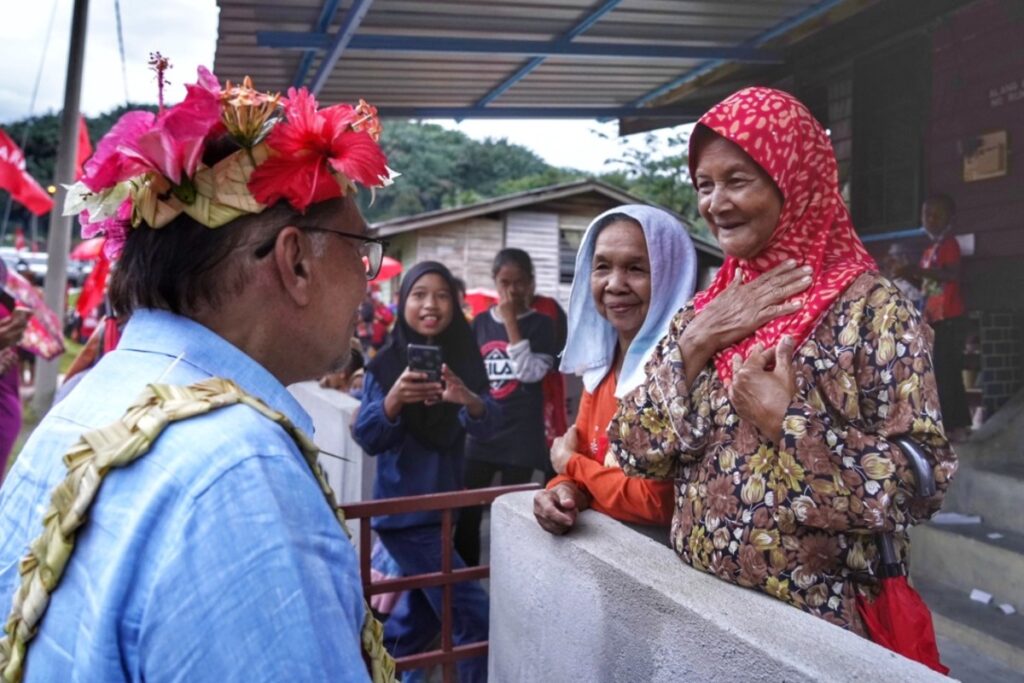
At about 6.50pm, Anwar and his election entourage arrived. Anwar was in his usual element, telling villagers that their welfare will be looked after by the “next PM” himself.
“By right, irrespective of whether you are a Malay, Chinese, Indian, or Orang Asli, if you are in need, attention must be given. This is why I ask for your support because we have reached independence for over 60 years now – we need to think differently.
“We must look after our people. I don’t believe that the Orang Asli community is asking for hundreds of thousands of ringgit, no. They are only asking for a comfortable place to live in, good access roads, education for their children, access to health facilities, doctors coming to visit now and then to check on their parents – that is all the community is asking for.
“What is so difficult about that?” Anwar said.
Anwar supporters had earlier distributed PH materials for the 15th general election, including stickers and flyers, with an ‘X’ marked beside PH’s typography logo.
Before departing Kampung Makmur, I asked a villager, a man who looked to be in his 40s, on whether he would support PH in GE15. With a cigarette in his hand, he said: “Sokong, sokong (I support).”
